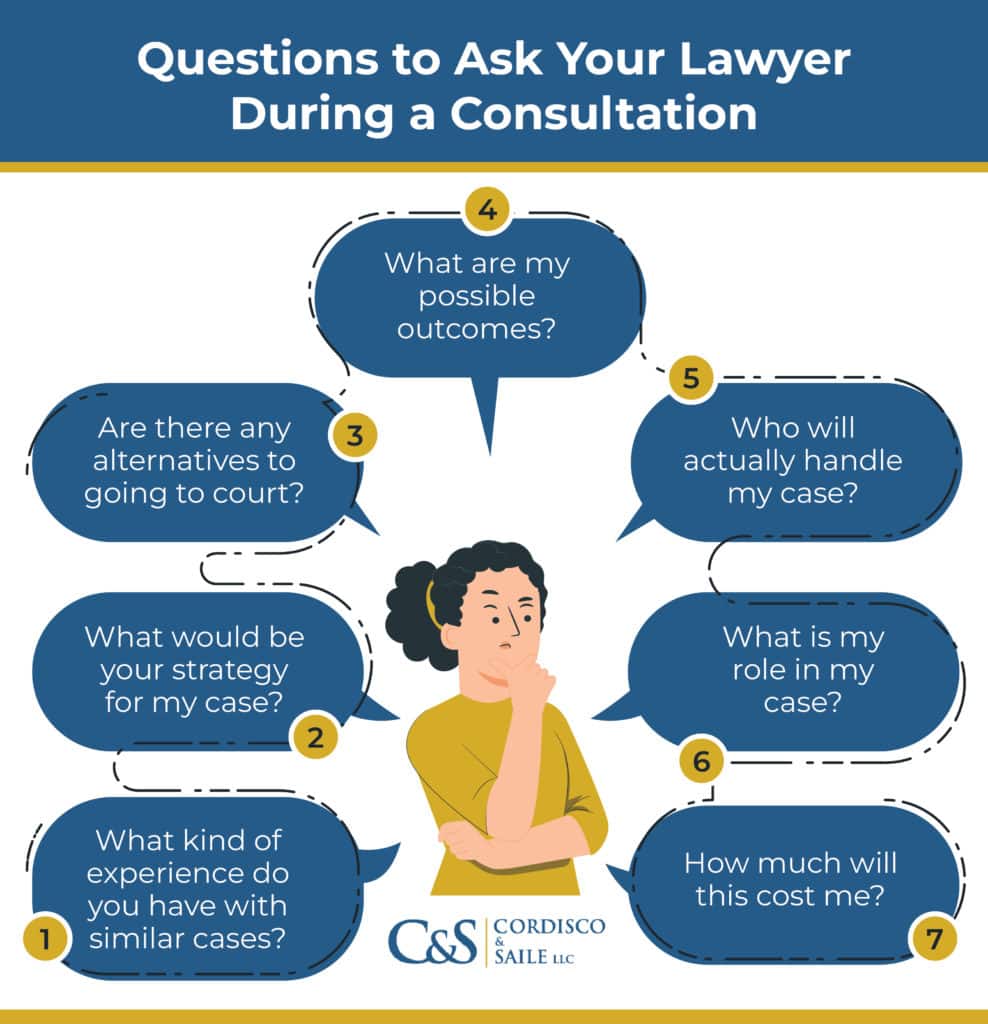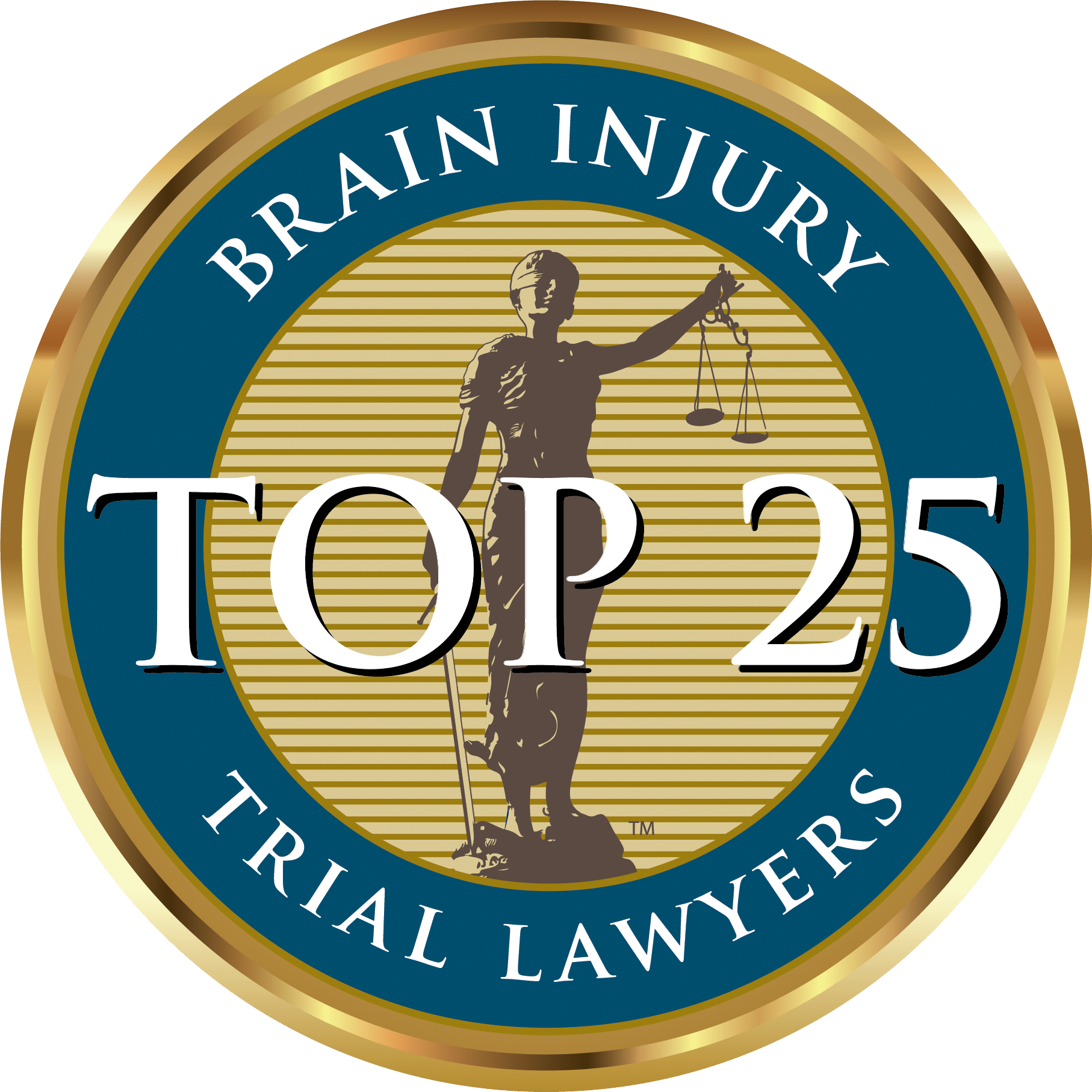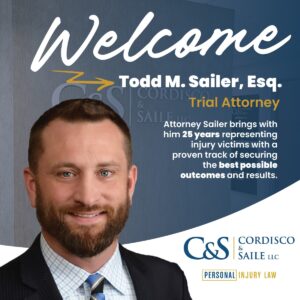Questions to Ask Your Lawyer During a Consultation

- 1) What kind of experience do you have with similar cases?
- 2) What would be your strategy for my case?
- 3) Are there any alternatives to going to court?
- 4) What are my possible outcomes?
- 5) Who will actually handle my case?
- 6) What is my role in my case?
- 7) What Are Your Fees and Costs?
- 8) Who Is Your Typical Client?
- 9) How Strong Is My Case?
- 10) How Long Have You Practiced Law?
- Questions Attorneys May Ask Their Clients
Knowing the questions to ask your lawyer during this consultation can make finding the right attorney much easier. Some of the most important questions to ask include questions on the attorney’s experience, fees and cost, and more!
Write and organize notes for your next consultation with Cordisco & Saile’s Attorney Consultation Worksheet!
1) What Kind of Experience Do You Have with Similar Cases?
You need to know how comfortable the lawyer is with cases like yours. While every case is somewhat different, the attorney will likely find some similarities between your case and a case they handled previously.
Related questions may include:
- Where did you attend law school?
- How long have you been practicing in Pennsylvania?
- What types of cases do you handle?
- How often do you handle cases similar to mine?
- Can you tell me about a case you handled similar to mine? What was the result?
- Do you have any client testimonials?
2) What Would Be Your Strategy for My Case?
Most lawyers do not offer specific legal advice in an initial consultation, but they should explain the possible approaches to handling your case. They may also offer a general overview of the strategy they will follow.
Related questions may include:
- What strategies have you used for similar cases in the past?
- How long do you think this case could take using this strategy?
- What are the pros and cons of this strategy?
3) Are There Any Alternatives to Going to Court?
Especially in personal injury cases, there is often a good chance you can avoid going to court. A lawyer will usually try to negotiate a fair and just settlement with the insurance company before resorting to filing a lawsuit. Even once you file a suit, mediation and arbitration may be possible. Both of these options can help you avoid going to court.
Related questions may include:
- What percentage of your cases have settled out of court?
- Do you consider yourself an effective negotiator?
- Are you comfortable taking this case to trial if you cannot reach a just settlement?
- Will you prepare my case for court even if you plan to settle out of court?
Get legal help from a legal team that will never stop fighting for you.

4) What Are My Possible Outcomes?
Some lawyers may only tell you what you want to hear. The right lawyer, however, will give you an honest look at how your case may conclude. No lawyer can give you an exact case value or promise that you will reach an out-of-court settlement, but they can offer possibilities based on their experience.
Related questions may include:
- Do you see us running into any major issues?
- What are our chances of avoiding a lawsuit?
5) Who Will Actually Handle My Case?
While you may meet with one lawyer, others in the legal office may work on your case. This often includes other attorneys and paralegals. You will want to know who your point of contact is within the office and the experience of those working on your case.
Related questions may include:
- Who should I call with questions about my case?
- How often can I expect updates or reports? How will I receive these updates?
- Will you represent me in settlement negotiations or court?
6) What Is My Role in My Case?
Attorneys desire different levels of participation from their clients. Your attorney probably will not want you to talk to witnesses or the insurance company without prior approval, but they may need you to compile documentation of your injuries and other similar tasks.
Related questions may include:
- What do you need from me to build the strongest possible case?
- What should I avoid in order to win my claim?
7) What Are Your Fees and Costs?
It is never fun to talk about money, but this is the time to do it. Most personal injury lawyers charge based on contingency and offer a free consultation. This means you pay nothing until you receive your settlement.
If your lawyer uses a contingency fee arrangement, their fees will be a percentage of your total award. At our law firm, this looks like a 35 percent attorney fee for cases that settle before litigation and a 40 percent fee for cases that settle after litigation. However, this structure does not apply to medical malpractice cases. Each law firm approaches contingency fees slightly differently, so you’ll want to ask the attorney about their fee structure for your unique case.
Related questions may include:
- What is your fee structure? Contingency? Hourly? Flat fee?
- Will there be any additional costs?
- Can you give me an estimate of the total cost of my case?
- Check out our bios to learn more about our team.
8) Who Is Your Typical Client?
Not all attorneys are equally equipped to represent you. Some attorneys primarily serve corporate clients, while others focus on representing individuals. Personal injury lawyers may have even narrower client specifications, such as only representing car accident victims or medical malpractice victims.
Before you commit to working with a lawyer, ask about the typical clients they represent and whether they’re comfortable taking on a case like yours. If they don’t typically represent clients in your situation, ask for a referral to a lawyer who does.
Related questions may include:
- Do you usually represent individual clients, businesses, or both sides?
- Do you limit your practice to a specific type of personal injury?
- Do you ever step outside of your usual practice area? If so, under what circumstances?
9) How Strong Is My Case?
You can only make a confident decision about taking legal action once you clearly understand your case’s strength. The right attorney will assess your case’s strength so you can decide whether it’s worth moving forward with a personal injury claim. While they can’t guarantee or predict a specific outcome, they can tell you whether they believe your case has a good chance of success.
Related questions may include:
- What are my case’s greatest strengths?
- What factors could potentially hinder my case’s success?
- In your opinion, what is the most likely outcome for my case?
- Is there anything we can do to strengthen my case?
10) How Long Have You Practiced Law?
The amount of time an attorney has been practicing law doesn’t necessarily determine their skill level, but it can tell you a lot about their ability to help you. Experienced lawyers have seen a wide range of cases and have spent more time fine-tuning their negotiation, research, and litigation skills. On the other hand, newer lawyers may be more familiar with recent legal developments and can offer a fresher perspective, so you’ll want to balance experience with other factors when deciding who to work with.
Our attorneys have a combined 30 years of experience practicing personal injury law, and our clients often benefit from the varied perspectives and skill sets that come with this background.
Related questions may include:
- How many years have you spent working on cases similar to mine?
- How do you stay up to date with relevant changes in the law?
Questions Attorneys May Ask Their Clients
The initial consultation is just as much an opportunity for the attorney to learn about your case as it is for you to ask questions. Your attorney’s questions will allow them to decide whether to work with you, inform you of your legal options, and guide you through your next steps.
What Are the Case Details?
Your attorney will need a complete understanding of the situation to provide you with useful legal advice. The more they know, the better they can serve you.
It’s worth taking the time to detail all relevant information about what happened to you and how it has impacted your life. Full transparency with your lawyer is crucial to your case’s success, so don’t hold back any information even if you think you might have done something wrong.
What Type of Evidence Do You Have Access To?
Strong evidence is the foundation of any successful personal injury case, so your attorney will want to know what documentation you have on hand. They’ll want to know about any medical bills and medical records related to the treatment you received for your injury.
These documents can demonstrate the link between the accident, your injury, and your resulting financial damages. Correspondence with insurance companies and photos or videos of the scene can also help your attorney evaluate your case’s strength. Keep an inventory of all relevant evidence and prepare to share it with your attorney during the consultation.
To schedule an initial consultation with the Bucks County personal injury attorneys at Cordisco & Saile LLC, call our office today at 215-642-2335.

Write and organize notes for your next consultation with Cordisco & Saile’s Attorney Consultation Worksheet!







